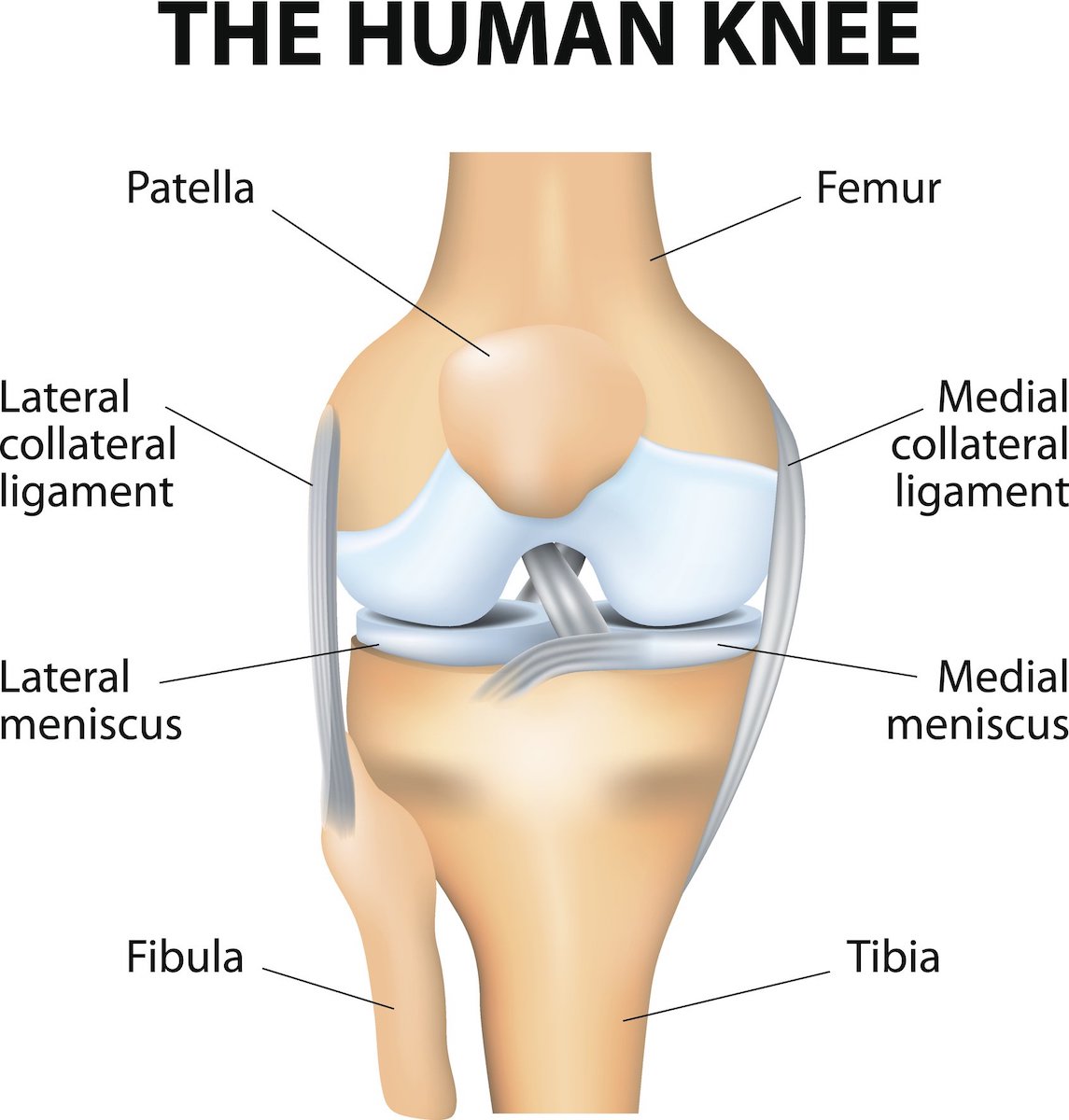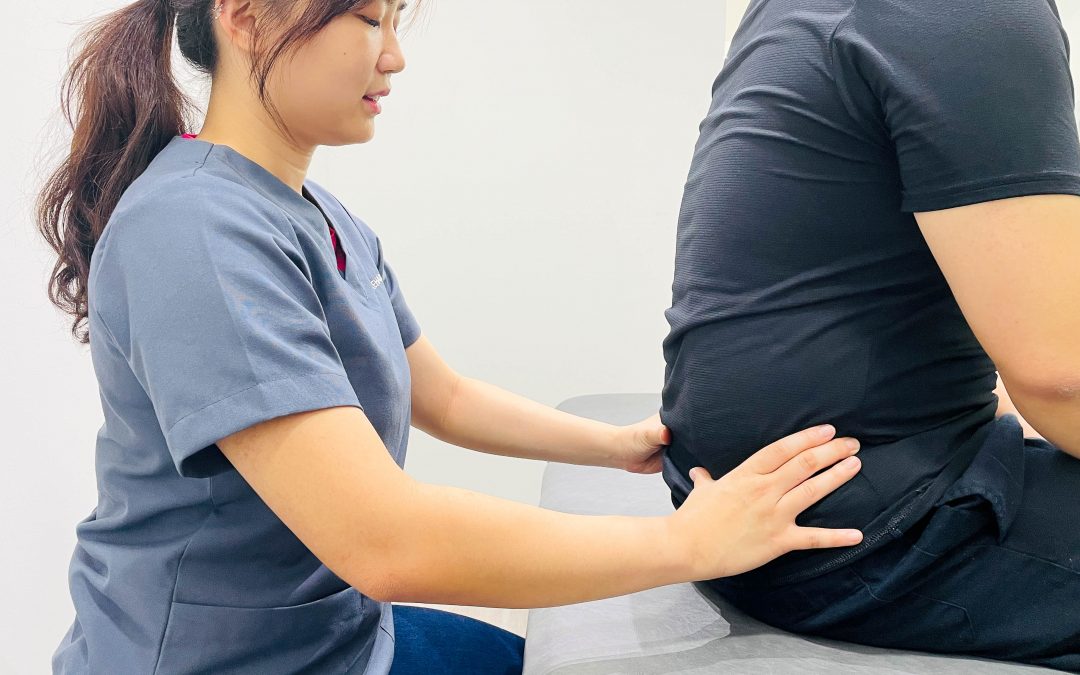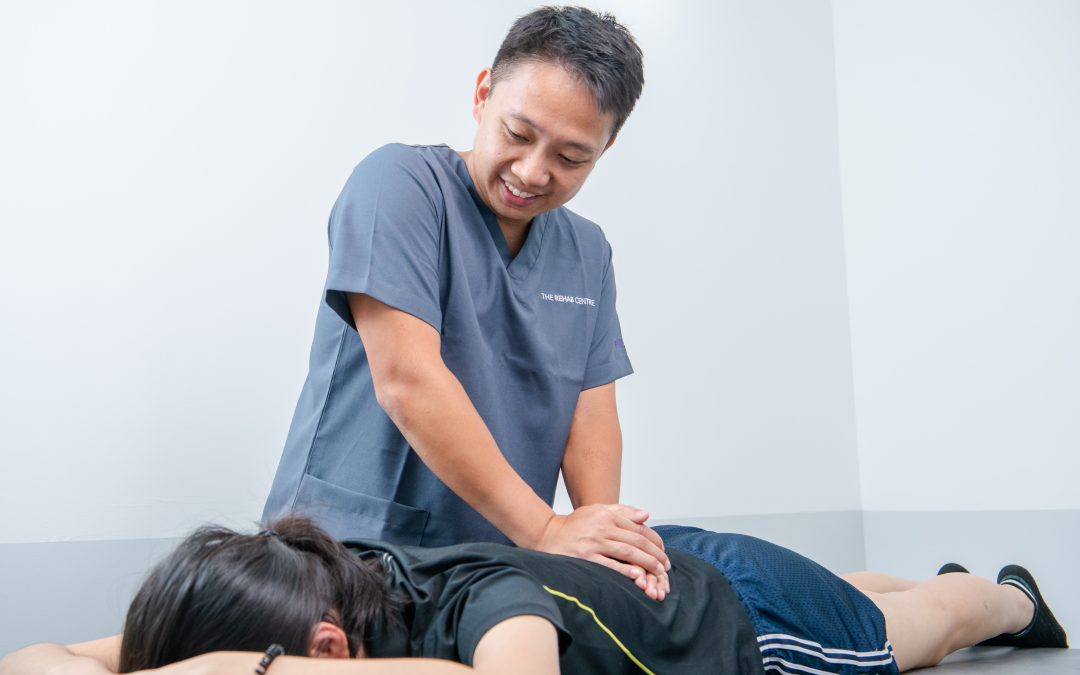Great! The MRI reports shows that I have a degenerative meniscus tear. Do I need surgery for a meniscus tear? I am not keen to do one. Can anything or anyone help?
Function of the Meniscus
Hang on, what and where is the meniscus? Imagine a hamburger. The meniscus is the patty while the buns are your thigh and leg bone. Easy!
Buns aside. The meniscus plays a major role in shock absorption and distributes stress/ load across the knee during any weight-bearing task like walking, running or jumping. It also provides articular cartilage nutrition and lubrication.
How do I know if I have a degenerative meniscus tear?
It can typically be present in people over the age of 30 and often gradual onset of symptoms with no known traumatic event.
You may feel experience the following:
- Pain and swelling
- Stiffness especially in the morning
- Sharp stabbing pain may be felt when knee was twisted
- Clicking/ popping sound
- Catching/ locking of the knee (e.g. In a case of ‘bucket-handle’ tears)
- Difficulty with fully bending or straightening of the knee
- Giving away/ buckling sensation at times
But does the degenerative meniscus tear on the MRI really matter?
Contrary to popular belief, degenerative changes in the meniscus found in scan does not correlate or dictate the amount of pain you experience. Recent scientific research studies suggest that people of all ages can have changes in many of their knee structures and yet….wait for it…experience no pain!!
Surgery or exercise for degenerative meniscus tears
Yes, we can! Exercise therapy has been suggested to have a desired outcome for symptomatic degenerative meniscus tears in terms of reducing pain level, improving muscle strength and physical ability in functional activities in the presence of degenerative joint disease progression.
In fact, there are studies that demonstrate the effectiveness of neuromuscular and strength training should be considered for rehabilitation of middle-aged patients with degenerative meniscus tears.
The benefits of Physiotherapy are still realised, even with worsening degeneration changes seen in scans, has been found in studies with up to 1-3 year follow-up without undergoing surgery.
What can you expect from Physiotherapy for your knee pain?
Your Physiotherapist will perform a thorough assessment to understand and address your area of concerns. You might be advised to limit activities that will exacerbate your symptoms depending on the severity of pain but complete rest is not advisable, otherwise increasing knee stiffness or muscular weakness may occur.
Your Physiotherapist will come up with a customised and individualised exercise therapy program, which will include neuromuscular and strength training, and we will work towards your rehabilitation and functional goals.
Here are someexercises for a degenerative meniscus tear:
Perhaps give Physiotherapy a trial for at least 3-6 months prior to considering a surgery?
With the infmration we have for degenerative meniscus tears and how exercise plays an important role in it, we urge yo to consider carefully as to what your next step should be!
Book now or give us a call to schedule an appointment to see our Physiotherapist who will be able to partner you to recovery and to address your concerns about your scans showing a degenerative meniscus tear.
DISCLAIMER: These advise and exercises should not replace the need for a consultation with a Physiotherapist especially if your condition doesn’t improve. Therapeutic exercise for degenerative meniscus tears should be carefully selected to suit your condition, complains and functional demands.
Ref:
- Brindle, T., Nyland, J., & Johnson, D. L. (2001). The meniscus: review of basic principles with application to surgery and rehabilitation. Journal of Athletic Training, 36(2), 160.
- Horga, L. M., Hirschmann, A. C., Henckel, J., Fotiadou, A., Di Laura, A., Torlasco, C., … & Hart, A. J. (2020). Prevalence of abnormal findings in 230 knees of asymptomatic adults using 3.0 T MRI. Skeletal Radiology, 49(7), 1099-1107.
- Howell, R., Kumar, N. S., Patel, N., & Tom, J. (2014). Degenerative meniscus: Pathogenesis, diagnosis, and treatment options. World Journal of Orthopedics, 5(5), 597.
- Neogi, D. S., Kumar, A., Rijal, L., Yadav, C. S., Jaiman, A., & Nag, H. L. (2013). Role of nonoperative treatment in managing degenerative tears of the medial meniscus posterior root. Journal of Orthopaedics and Traumatology, 14(3), 193-199.
- Stensrud, S., Roos, E. M., & Risberg, M. A. (2012). A 12-week exercise therapy program in middle-aged patients with degenerative meniscus tears: a case series with 1-year follow-up. Journal of Orthopaedic & Sports Physical Therapy, 42(11), 919-931.
Filed under: Knee

















